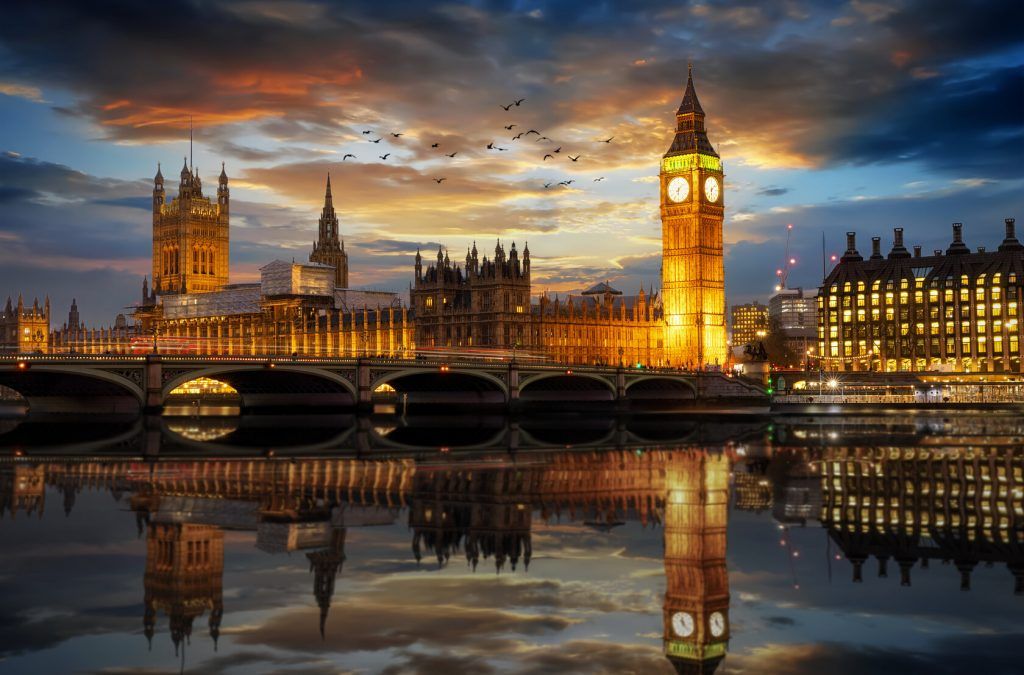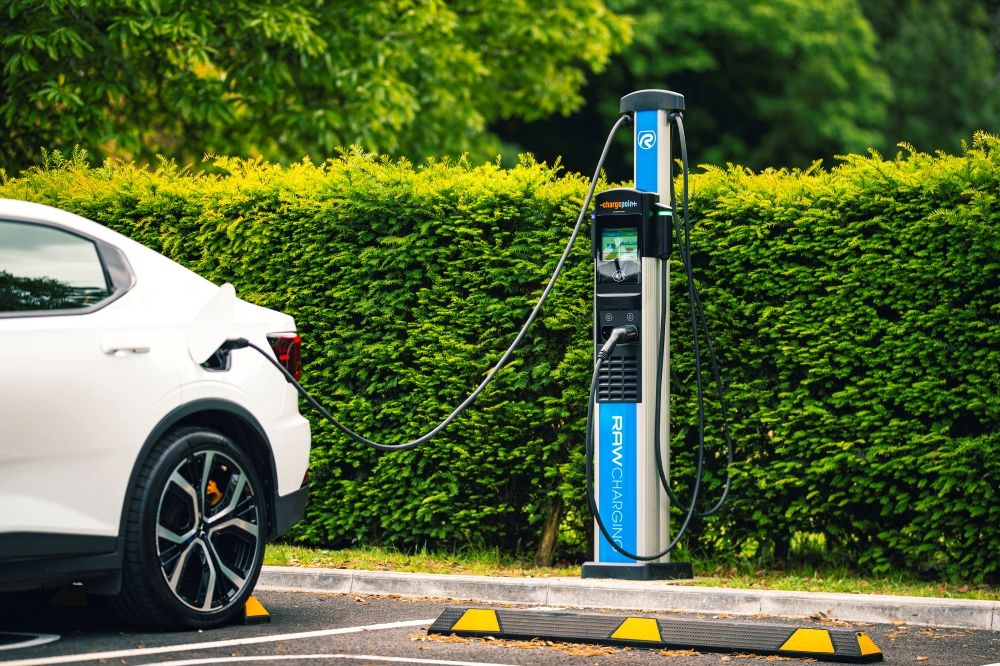The Government has launched its long awaited Transport Decarbonisation Plan (TDP) which includes ambitious plans to decarbonise all modes of domestic transport by 2050, a pledge to end the sale of new diesel and petrol heavy goods vehicles (HGVs) by 2040 and a commitment to electrify the entire fleet of government cars and vans by 2027.
According to Transport Secretary Grant Shapps, cleaner air, healthier communities and tens of thousands of new green jobs are set to become reality thanks to the TDP. The full plan is available to view here.
With just months to go until major climate summit COP26, the plan provides a “world-leading ‘greenprint’ to cut emissions from our seas and skies, roads and railways”, and sets out a credible pathway for the whole transport sector to reach net zero by 2050.
Cleaner transport will create and support highly skilled jobs, with the production of zero emission road vehicles alone having the potential to support tens of thousands of jobs worth up to £9.7 billion GVA in 2050.
As part of this vision, the Government is today (14 July) announcing its intention to phase out the sale of new diesel and petrol heavy goods vehicles (HGVs) by 2040, subject to consultation – combined with the 2035 phase out date for polluting cars and vans. The Government say this “represents a world-leading pledge to phase out all polluting road vehicles within the next two decades”.
The consultation proposes a 2035 phase out date for vehicles weighing from 3.5-26 tonnes and 2040 for vehicles weighing more than 26 tonnes – or earlier if a faster transition seems feasible.
With billions of pounds in investment already pledged including £2 billion in cycling and walking and £2.8 billion to support industry and motorists to make the switch to cleaner vehicles, the Transport Decarbonisation Plan also sets out how the Government will improve public transport and increase support for active travel to make them the natural first choice for all who can take them – creating a net zero rail network by 2050; ensuring net zero domestic aviation emissions by 2040; and leading the transition to green shipping.
Transport Secretary Grant Shapps said: “Transport is not just how you get around. It is something that fundamentally shapes our towns, cities, and countryside, our living standards and our health. It can shape all those things for good, or for bad. Decarbonisation is not just some technocratic process. It’s about how we make sure that transport shapes quality of life and the economy in ways that are good.
“It’s not about stopping people doing things: it’s about doing the same things differently. We will still fly on holiday, but in more efficient aircraft, using sustainable fuel. We will still drive, but increasingly in zero-emission cars.
“The Transport Decarbonisation Plan is just the start – we will need continued efforts and collaboration to deliver its ambitious commitments, which will ultimately create sustainable economic growth through healthier communities as we build back greener.”
Elizabeth de Jong, Director of Policy at Logistics UK, said: “The Transport Decarbonisation Plan will help to provide logistics businesses with confidence and clarity on the steps they must take on the pathway to Net Zero. Consultation on proposed phase-out dates for new diesel HGVs should enable business to move forwards with confidence. Rail, shipping and aviation are all essential parts of logistics, so plans to support freight modal shift and develop technologies to reduce emissions across these modes are welcome. With logistics already embracing the need to decarbonise its operations, Logistics UK looks forward to working in partnership with the government on future action and strategies to realise the Net Zero ambition together.”
Sandy Parsonage, Director of Supply Chain and Logistics for Sainsbury’s who are a principle sponsor of COP26 said: “We welcome the Government’s ambition and look forward to engaging with the consultation. We are already working across our supply chain to explore alternative fuels and develop a zero carbon fleet of the future. At the same time we’re investing to reduce the emissions across our current fleet. This ambition will accelerate efforts to develop the technologies the UK needs to achieve net zero.”
The Government has also published a Green Paper which sets out the regulatory framework requiring vehicle manufacturers to improve the fuel efficiency of new cars, vans, and HGVs, enabling the country to meet the ambitious phase out dates while creating new jobs for the automotive sector and delivering certainty for drivers. This includes consulting on the possible introduction of a new phased industry mandate for zero emission vehicles.
The Government is also today publishing a 2035 Delivery Plan which brings together all of the measures for decarbonising cars and vans, from across Government, into a single document. It outlines the key timelines, milestones and how progress towards the commitment to deliver mass ownership of zero emission cars and vans will be monitored.
This follows recent investments from car manufacturer Nissan to produce their new-generation electric in Sunderland, alongside Envision’s new Gigafactory, as well as Stellantis’s investment in Vauxhall’s Ellesmere Port manufacturing plant to transform the site for a new era in electric vehicle manufacturing.
Aviation has a vital role to play in tackling climate change which is why the Government is today also launching the Jet Zero consultation which commits the sector to a net zero emissions target by 2050, and sets out an action plan for how it can be achieved – ensuring everyone can continue to fly for holidays, visits to family and business without contributing to climate change.
Reflecting the fact the UK aviation industry is already leading the way in seeking to reduce emissions from flights, the consultation proposes an earlier target for UK domestic aviation to reach net zero by 2040 as well as for all airport operations in England to be zero emission by 2040.
Emma Gilthorpe, COO of Heathrow and Jet Zero Council CEO said: “I welcome the leadership from Government in committing to a target of net zero emissions from aviation by 2050, and recognising that the aviation industry is committed to delivering on this too. We look forward to working with Government to translate this ambition to action and deliver a future where people can continue to enjoy the benefits of air travel – without worrying about their impact on the environment”.
Greg Archer, UK Director of the Europe-wide green transport campaign group Transport & Environment, said: “This plan is a milestone in the shift to a more sustainable UK transport system. The decision to only use zero-emission road vehicles – including trucks – by 2050 is world leading and will significantly reduce Britain’s climate impact and improve the air we breathe. This complements the goal of net-zero internal UK flights by 2040, although there is much more to do to tackle international aviation emissions.”
Graeme Cooper, Head of Future Markets at National Grid, commented: “This is the first zero emissions transport mandate for a major economy and is a great opportunity ahead of COP26 to show the UK’s commitment to clean transport and clean air. The Government has already committed significant investment for EV charging infrastructure, and today’s announcement will be a further boost, giving the industry and consumers clarity and confidence for the road ahead, not just for cars but other forms of transport too, including heavy goods vehicles.”
BVRLA Chief Executive Gerry Keaney said: “We welcome the publication of these plans, which provides a clearer picture of where we are and where we need to get to on the road to net zero.
“BVRLA members will play a vital role in this journey, enabling millions of individuals and businesses to embrace zero emission road transport and switch to more sustainable forms of mobility. There will be many important milestones along the way and we will continue to work with government and other stakeholders in achieving them.”
The Government is today also:
- Announcing that it has brought forward the target date for the whole central Government fleet of 40,000 cars and vans to be fully zero emission by 2027, three years earlier than previously planned.
- Publishing the Government’s response to the Electric Vehicle Smart Charging consultation, committing to laying legislation later this year to ensure that all new private EV chargepoints meet smart charging standards, which can save consumers money on their energy bills.
- Publishing its Rail Environment Policy Statement, which will set the direction for the rail industry on environment issues such as traction decarbonisation, air quality, decarbonising the rail estate, biodiversity and waste.
Further industry reaction to follow.
Image: Shutterstock












